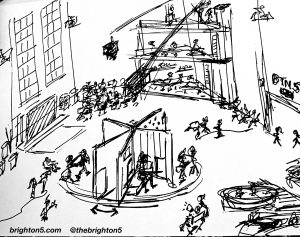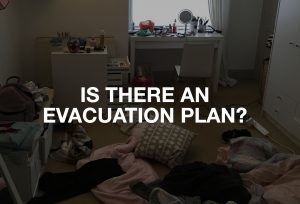 Everyday I find stories that involve teenagers, device addiction and mental health. They are all over the press, as rates of depression and self-harm soar in youngsters.
Everyday I find stories that involve teenagers, device addiction and mental health. They are all over the press, as rates of depression and self-harm soar in youngsters.
One article that caught my eye, by Tech journalist Moya Sarner was about Belinda Parmar – who “was a passionate advocate of the digital revolution – but has started keeping her family’s smartphones and laptops locked away to protect her loved ones”
I then had a very interesting discussion with my 17 year old daughter about confiscating devices. She said “if the kid is trusted with the device it shouldn’t be confiscated.” And there lies the problem. It is not necessarily our kids we don’t trust but the social media giants who have deliberately created addictive platforms and the unregulated content that is published on them. Try explaining that to my 13 year old. Do I trust her to discern which content is suitable for her? I am afraid not.
To quote the article – “These experts agree that abstinence is not the way forward: instead, we need to build what they call digital resilience, and learn to use technology in a measured, controlled way.”
One of the five core pillars of Brighton5 is to teach our kids fearless enquiry. To teach them how to discern, to question, and to ultimately understand the ramifications of their digital activities. This should be done in ways they can relate to – younger teens are heavily influenced by older teens, so Brighton5 aims to empower teens to change their behavior for the better, by helping them help themselves.

 This week is full, once again. No zero days. By full, I mean thinking time and collaboration time. The world of Brighton5 is evolving rapidly- alongside some amazing local collaborators. And my time is taken up thinking, mapping, scheming and dreaming with these wonderful people.
This week is full, once again. No zero days. By full, I mean thinking time and collaboration time. The world of Brighton5 is evolving rapidly- alongside some amazing local collaborators. And my time is taken up thinking, mapping, scheming and dreaming with these wonderful people.  For any working parent, half term can be difficult to juggle. My half terms seem to combine random teenage demands with me moaning myself into a stupor about about the state of their bedrooms. For years I have told myself to book the time off. To down tools and be there for the kids. But that never quite happens. I might get a day or two – but that usually ends up with me tackling jobs in the house I wouldn’t normally have time or inclination to do, not properly interacting with the kids at all. So, here we are again, at the end of the half term week and I am in exactly the same place as I always am – slightly defeated, spun out of my routine, wondering if my teens will ever clear up their rooms.
For any working parent, half term can be difficult to juggle. My half terms seem to combine random teenage demands with me moaning myself into a stupor about about the state of their bedrooms. For years I have told myself to book the time off. To down tools and be there for the kids. But that never quite happens. I might get a day or two – but that usually ends up with me tackling jobs in the house I wouldn’t normally have time or inclination to do, not properly interacting with the kids at all. So, here we are again, at the end of the half term week and I am in exactly the same place as I always am – slightly defeated, spun out of my routine, wondering if my teens will ever clear up their rooms.